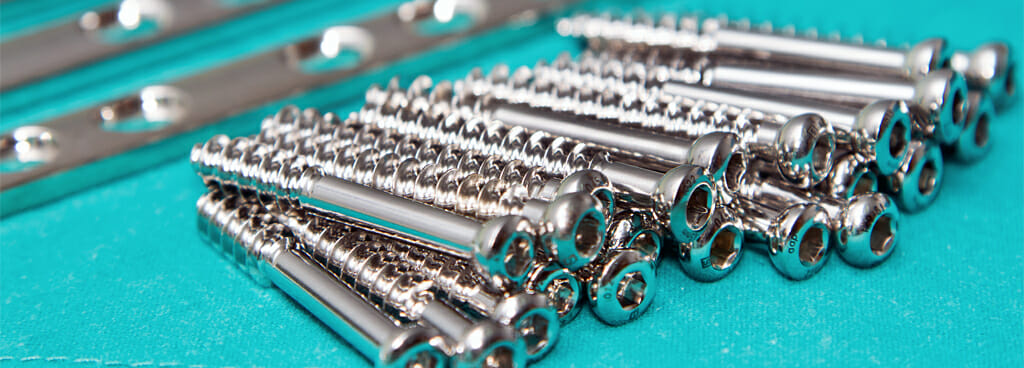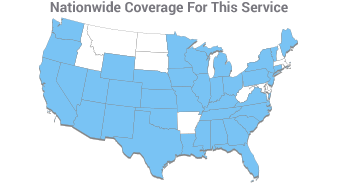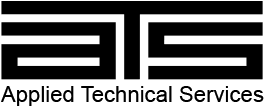- Home
- Services/IndustriesServicesindustries
- About Us
- LocationsStatesAccordion ContentAccordion ContentAccordion ContentAccordion Content
- Job Openings
- Quick Links
- ATS Family

Medical Device Testing with ATS
The Applied Technical Services (ATS) Family of Companies has provided mechanical testing capabilities for medical device clients. Our 24-hour operation and expert team of engineers makes us one of the leading support services in prototyping, testing, and consulting worldwide. Through various testing methods, our company helps medical device manufacturers ensure functionality, quality, and safety in their products.
Types of Medical Device Testing
Tensile testing: This method provides manufacturers with information about the tensile strength, yield strength, and ductility of the metallic material. Through testing, we can determine the force required to break a composite or stretch the specimen to that breaking point.
Shear testing: The medical device testing lab will move two forces in opposition to one another while pushing them in parallel directions. We then apply these forces to part of the assembly. This test determines shear strength, an important design characteristic on multiple types of fasteners.
Torsion testing: Technicians perform this type of medical testing by adding force to a fixed point. Manufacturers request it to help collect information such as torsional shear stress, shear modulus, and maximum torque, as well as to locate the material’s breaking angle.
Fatigue testing: A specialized form of mechanical testing that entails applying a cyclic load to a coupon or structure. This test can determine the sample’s fatigue life, identify critical locations, and show whether it may be susceptible to fatigue.
Wear and simulation testing: Wear testing evaluates a device’s performance in real-world conditions and determines whether it will perform its function properly. Also known as simulation testing, we use this medical device testing method to establish how much wear an implant can sustain in order to determine its usability under clinical conditions.
Instrument and life cycle testing: Instrument and life testing applies mechanical functions to a tested unit in a controlled environment over a specific duration of time. These units are observed for strengths, weaknesses, and failures over the testing period.
Lot verification testing: This testing confirms that each lot of products manufactured meet the minimum quality and safety criteria before release.
Non-standard testing: An umbrella term for many different types of testing ranging from novel materials to cutting-edge designs. Anything so new or unusual that it has no accepted testing standard falls into this category.
Axial compression testing: This is a medical device testing service where our technicians apply force to compress the specimen. Because it closely replicates the stresses that materials will encounter throughout their service lives, this method represents a significant portion of the fatigue and static testing we perform.
Dedicated screw testing:
Driving torque: This test determines how much force a screw takes to drive into a known substrate. The Family of Companies has custom test beds to perform this specific type of testing. Customers can use the data gained from this testing to optimize designs and guarantee they are not overloading the bone.
Pull-out: Pull-out testing determines a screw’s resistance to being pulled out of its substrate. The medical testing labs often carry out this test after a driving torque test. Doing so helps customers better understand the level of hold their screw has inside a bone substrate.
Shear, fatigue, and lever: These tests assess how much force a screw can withstand when moving or levering due to a plate or rod. This testing determines how strong the fixation is without the substrate present.
Accreditation and Quality Standards
The ATS Family of Companies holds an ISO/IEC 17025:2017 accreditation (A2LA Cert No. 2142.01) for the highest number of medical device testing methods of any United States company. Our lab performs medical device testing and evaluations according to recognized ASTM and ISO standard specifications appropriate to our testing application. Both these qualification aspects set the Family of Companies apart from our competitors by reducing costs, establishing credibility, and improving efficiency.
The Family of Companies has medical device testing labs that equip manufacturers with the tools to get it right from the start. We get medical device manufacturers to market faster for less by helping them uphold their quality and safety standards.

Request Form
"*" indicates required fields
Medical Device Testing
ASTM Testing
- ASTM F1044 Shear Testing of CaP and Metallic Coatings
- ASTM F1160 Shear and Bending Fatigue of Coatings
- ASTM F1264 Intramedullary Fixation Device Testing
- ASTM F1357 Articulating Total Wrist Implant Testing
- ASTM F1378 Shoulder Prostheses Testing
- ASTM F1541 ESFD Testing
- ASTM F1672 Patellar Prosthesis Testing
- ASTM F1714 Gravimetric Wear Assessment of Prosthetic Hip Design in Simulator Device Testing
- ASTM F1717 Spinal Implant Testing
- ASTM F1781 Elastomeric Flexible Hinge Finger Total Joint Implants Testing
- ASTM F1798 Spinal Implant Subassembly Testing
- ASTM F1820 Modular Acetabular Device Strength Testing
- ASTM F1829 Glenoid Locking Mechanism Shear Testing
- ASTM F1875 Fretting Corrosion Testing of Hip Implant Interfaces
- ASTM 2009 Modular Prostheses Taper Connection Testing
- ASTM F2025 Wear Assessment of Polymeric Components
- ASTM F2028 Glenoid Loosening Testing
- ASTM F2077 Intervertebral Body Fusion Device Testing
- ASTM F2183 Small Punch Testing
- ASTM F2193 Spinal Fixation Components
- ASTM F2267 Measuring Subsidence of Intervertebral Fusion Devices
- ASTM F2346 Standard and Dynamic Testing of Artificial Intervertebral Discs
- ASTM F2423 Wear and Fatigue Testing of Total Disc Prostheses
- ASTM F2502 Absorbable Plate and Screw Testing
- ASTM F2554 CAS System Precision Testing
- ASTM F2624 Static, Dynamic, and Wear Testing of Extra-Discal Spinal Implants
- ASTM F2624 Spinal Implant Dynamic Testing
- ASTM F2694 Lumbar Total Facet Prosthesis Testing
- ASTM F2706 Spinal Implant Fatigue Testing
- ASTM F2789 Mechanical and Functional Characterization of Nucleus Devices
- ASTM F2790 Static and Dynamic Testing of Total Facet Prostheses
- ASTM F382 Metallic Bone Plates Testing
- ASTM F384 Angled Orthopedic Fixation Testing
- ASTM F543 Metallic Medical Bone Screw Testing
- ASTM F564 Metallic Bone Staple Testing
ISO Testing
- Biocompatibility Testing for Medical Devices ISO 10993
- ISO-10328 Structural Testing of Lower Limb Prosthetics
- ISO 10993 Biocompatibility
- ISO 10993 Biocompatibility Testing
- ISO 10993 Testing
- ISO 10993 Testing Lab
- ISO 18192-1 Wear Testing for Intervertebral Disc Prostheses
- ISO 12189 Fatigue Testing of Flexible Spinal Implants
Medical Device Testing
- Fatigue Testing Lab
- Implant Testing
- Material Testing Laboratory
- Material Device Regulatory Compliance Testing
- Medical Device Testing
- Medical Device Testing Certification
- Medical Device Materials Testing
- Medical Device Materials Testing Consulting
- Medical Device Mechanical Testing
- Medical Device Mechanical Testing Regulations
- Medical Device Performance Testing
- Medical Device Product Testing
- Medical Device Reliability Testing
- Medical Device Standards Testing
- Medical Device Standards Testing Certifications
- Medical Device Testing Companies
- Medical Device Testing Services
- Medical Device Testing Lab
- Medical Implant Testing Lab
- Orthopedic Device Testing
- Prosthetic Testing
- Prosthetic Testing Services
